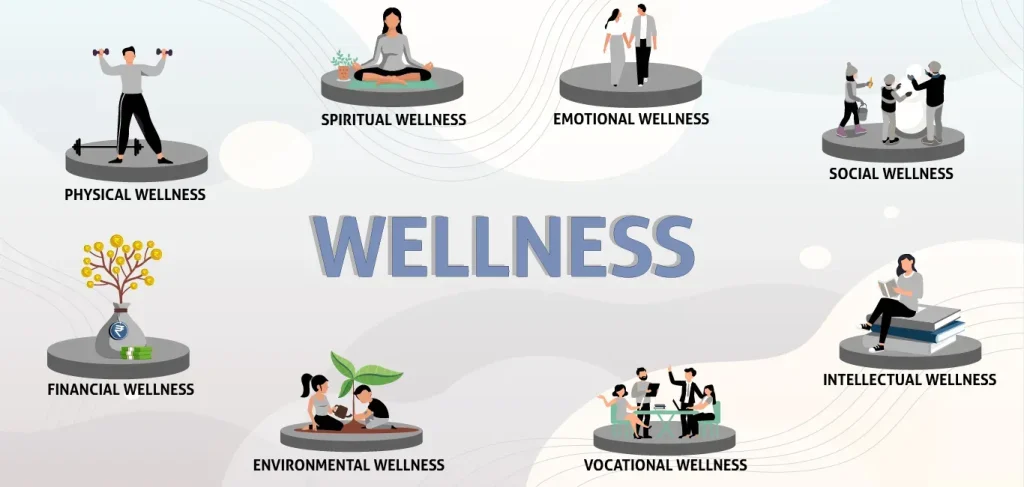Health and Wellness is a holistic wellness approach to living that blends physical health, mental resilience, and daily habits. For beginners, try starter steps and beginner health tips that reduce overwhelm while building momentum. A practical plan combines fitness and nutrition, mental health basics, and consistent sleep to boost energy and mood. Small, repeatable actions—such as short walks, balanced meals, and mindful routines—accumulate into lasting improvements. Focusing on wellness routines for beginners helps you create a sustainable habit loop that supports overall well-being.
Viewed through the lens of well-being and balanced living, this framework emphasizes routines that nurture body and mind. Another way to frame it is as holistic health, highlighting lifestyle choices, sleep quality, stress management, and social connection. The emphasis shifts toward gentle, repeatable practices in physical fitness, nutrition understanding, and recovery. Using related terms helps readers and search engines recognize the same concept from different angles, extending beyond one label. In short, this approach supports sustainable health by integrating daily habits, resilience, and purpose.
Health and Wellness Foundations for Beginners
Health and Wellness begins with simple, repeatable actions that integrate physical health, mental resilience, and daily routines. Embracing beginner health tips helps remove overwhelm by focusing on one achievable habit at a time, while a holistic wellness mindset connects nutrition, movement, sleep, and mood. Even modest gains in consistency—such as adding vegetables to meals, increasing water intake, and scheduling regular activity—can compound into noticeable improvements in energy, mood, and longevity, aligning with the broader goals of fitness and nutrition.
To put this into practice, build a lightweight routine that fits your schedule and values. Prioritize sleep and stress management as foundations of mental health basics, and design simple wellness routines for beginners that you can repeat weekly. Track progress with friendly metrics, celebrate small wins, and gradually layer in more practices—an approach that respects your pace and supports lasting change.
Fitness and Nutrition Essentials for Wellness Routines for Beginners
Fitness and nutrition are the twin pillars of sustainable Health and Wellness. Start with approachable movement—15 to 20 minutes most days of the week—then expand gradually as your endurance grows. Activities like walking, cycling, or a beginner-friendly bodyweight circuit demonstrate that you don’t need a gym to make meaningful gains, echoing general beginner health tips and the ethos of holistic wellness.
Nutrition-wise, aim for a balanced plate of lean proteins, vegetables or fruit, whole grains, and healthy fats. Practical strategies include meal planning, prioritizing whole foods over ultra-processed options, and staying hydrated throughout the day. The combination of mindful eating and steady hydration complements mental health basics by supporting stable energy and mood, while keeping wellness routines for beginners manageable and enjoyable.
Frequently Asked Questions
What are some beginner health tips to start Health and Wellness?
As beginner health tips, start with one or two simple habits and build from there. Focus on anchoring meals with vegetables, staying hydrated, scheduling a consistent sleep routine, and moving more days than you sit. For a sustainable approach to Health and Wellness, follow wellness routines for beginners that combine 15–20 minutes of moderate activity most days with a balanced plate and regular hydration. Track your progress weekly, celebrate small wins, and gradually layer in new practices to support holistic wellness.
How can fitness and nutrition support holistic wellness for someone new to Health and Wellness?
Fitness and nutrition are foundational to holistic wellness. You don’t need to be a gym enthusiast—aim for 15–20 minutes of moderate activity most days and a flexible nutrition plan centered on lean proteins, vegetables, whole grains, and healthy fats. Pair this with adequate sleep, stress management (mental health basics), and social connection to strengthen overall well-being. For beginners, use simple wellness routines for beginners: a short morning ritual, a daily movement block, consistent hydration, and a calming wind-down before bed. Track progress and adjust gradually to maintain motivation and avoid burnout.
| Pillar | Key Points | Practical Tips |
|---|---|---|
| Health and Wellness (Overview) |
|
|
| Fitness |
|
|
| Nutrition |
|
|
| Sleep |
|
|
| Mental Health & Stress Management |
|
|
| Holistic Wellness: Integrated Routine |
|
|
| Beginner Routines |
|
|
| Progress Tracking & Adjustments |
|
|
| Common Mistakes |
|
|
| Mindset & Longevity |
|
|
| Conclusion |
|
|
Summary
Health and Wellness is a holistic, lifelong journey that blends physical fitness, balanced nutrition, adequate sleep, mental resilience, and meaningful daily routines to improve energy, mood, and longevity. As you begin, focus on small, repeatable actions across the pillars of fitness, nutrition, sleep, stress management, and social connection, and gradually layer in more practices as confidence grows. This descriptive overview illustrates how beginners can build sustainable habits that compound over time, transforming energy levels, mood, and overall well-being.

